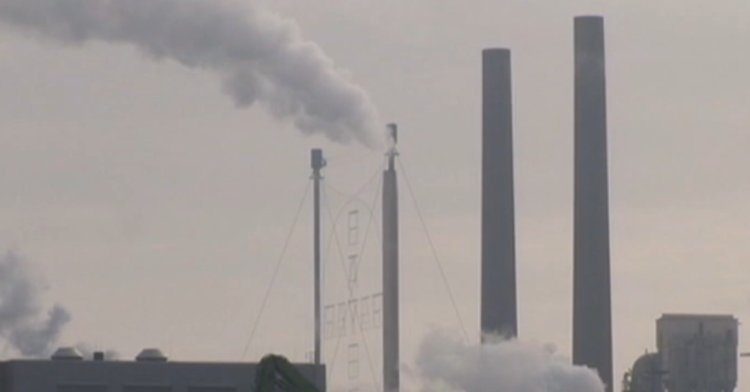A climate catastrophe is not possible to prevent any more was already the prognosis of the Australian scientist Frank Fenner in 2010. His distinct warning: In 100 years the earth will be inhabitable, we humankind will die out. This is what the climate conference is supposed to stop with worldwide binding goals, to protect the climate better in the future. For the 21st time it will sit again this year from the 30 November to the 11 December in Paris. This conference is especially meaningful as a new convention for the reduction of greenhouse gases is supposed to be made. The new international Climate protection agreement will renew the Kyoto-protocol from 1997. However now the agreement threatens to be a failure.
The EU has made itself three ambiguous goals for the climate-and energy politics. Until 2030 the greenhouse emissions should be reduced at least 40 percent compared to the amount of emissions from 1990. The percentage of renewable energy from the overall energy should increase Europe-wide to a minimum of 27 percent.
And the EU Commission goes even further, together with other industrialised countries the CO2 emissions until 2050 shall be decreased from 80 to 95 percent compared to 1990. With these guidelines the EU counts as the model student in climate politics. However its influence on the climate conference remains limited. Only when all 195 states besides the EU bind themselves to a new treaty can the ambitious goals of the EU be implemented. Therefore the EU has in the past months intensified its climate politics. In February the EU-Commission published a communication to the Council and Parliament which sets up a plan concerning the preparation for the climate summit. The Commission makes clear that especially the G-20 States, the USA and China should early commit to a climate protection duty to therefore make a “clear signal of political leadership will”. However the will of the most important industrialised nations limited to follow the example of the EU. Merely 22 countries openly laid out until March their reduction goals at the United Nations. Not all industrialised and emerging countries have completed this request. The targets from countries such as Brazil and India are still missing. At least China has handed in its climate goals in June. The climax of the emissions of the worldwide climate sinners should be reached at the latest 2030.
The risk of a failing of the negotiations remains. Then binding international concerns concerning the climate protection is only difficult to reach. And it gets even worse: For the case that the states cannot agree on a binding agreement, a Plan B is missing-not only from the side of the EU but also from the entire world community.


Follow the comments: |
|
